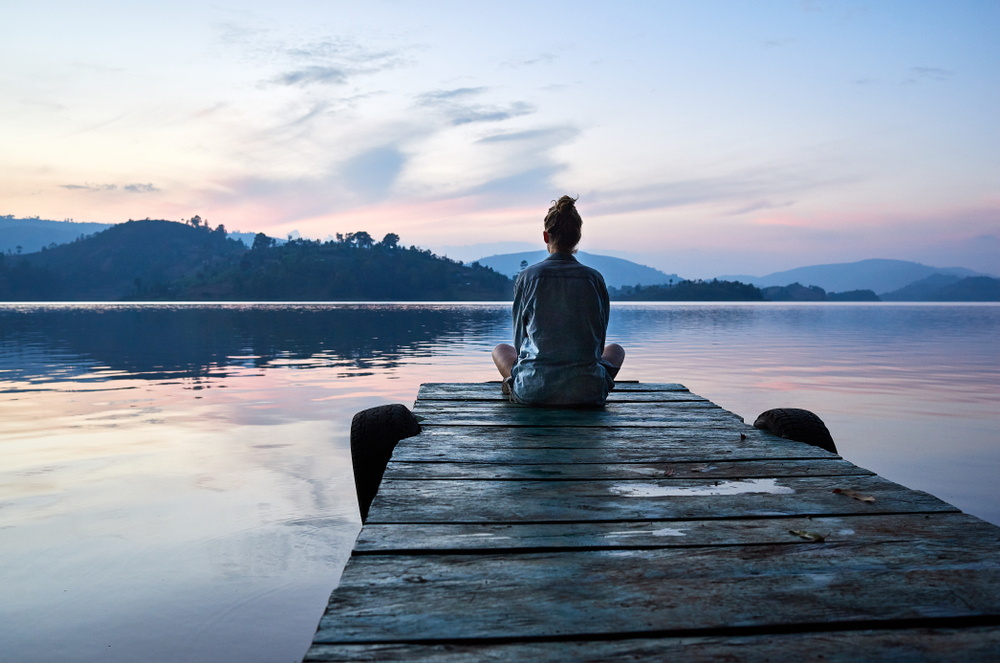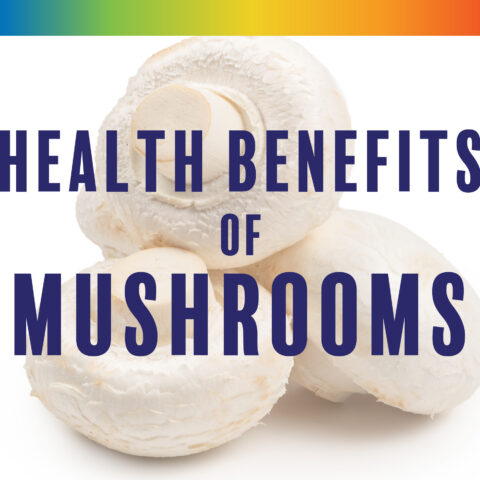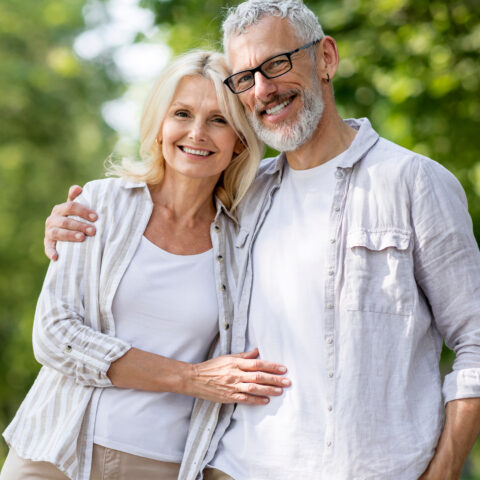Natural Ways to Reduce Stress, Proven by Science

Stress impacts our lives more today than ever before. Whether we’re enduring the hustle of a busy work or personal life, or navigating the challenge of finding a new normal in the wake of a pandemic, stress seems to be a fixture of modern life. Fortunately, there are natural ways to reduce stress, backed by research.
Don’t Live with Stress
Chronic stress isn’t something we should just accept. Short-term bouts of stress have the potential to save our lives—it’s why the “fight or flight” epinephrine-driven response exists, after all. Certainly that short-term stress was very adaptive for our Paleolithic ancestors. But what they rarely experienced was chronic stress, which works against us, eroding our physical wellbeing and mental health.
Health Impacts of High Stress
Stress can wreak havoc on all aspects of our lives. When it results from a traumatic or negative life event, it can lead to depression—which comes with its own set of challenges. High stress levels can also elevate your blood pressure and suppress your immune function.[1] Perhaps even more alarming, stress can influence how the brain works and may even predispose someone to develop long-term psychiatric disorders. [2](2)
While we can’t change our genes, epigenetic changes are possible which can turn genes on or off or influence how strongly a particular gene expresses. Environment can influence these epigenetic changes. This can include the actual environment you live in, but can also include the food you eat and the lifestyle that you lead—including your stress load. Chronic stress can lead to epigenetic changes that can result in health problems.[3]
Men and Women Experience Stress Differently
Men and women differ physiologically in many ways, and how they process and respond to stress is one of them. [4] Different areas of the brain are activated when it comes to sex-responsive differences to stress, with some research finding that women are more in touch with their emotions and how stress makes them feel, as well as a willingness or desire to talk about it. [5]
Stress Is Individual
Everyone is different, and stress won’t impact everyone the same way. Childhood experiences can predispose people to be more or less resilient, as can individual genes. There are even some differences, found in animal studies, as to how stress impacts performance, increasing it in men but suppressing it in women. [3]
Ultimately, it doesn’t matter how stress impacts you specifically. It is important, however, that you have a plan for how to address it when it happens.
Don’t Waste Time or Money on Unproven Relief
The Internet is filled with suggested ways to help address stress. Sadly, many of them are designed to take advantage of stress—not to reduce it.
This is especially true, for example, with those promoting (and trying to capitalize on) “mommy wine” culture, who suggest that moms “need” alcohol to unwind at the end of a long day or to deal with family visits during the holiday season. (Consider these 7 Stress-Busting Drinks instead.)
It’s also true of people who market relaxation items, like comfy clothes and bath salts, or facial masks and other spa-like treatments. These things are not bad in and of themselves, but the marketing world might try to convince you that each is a cure-all. None of them is.
You Can Destress!
There is good news here: Even if you’ve endured months or years of chronic stress, you can undo it. The brain has the capability to rewire and relearn, a process known as neuroplasticity. This happens as the body and the brain are able to shed stress and come back into balance. Mind-body practices are not always proven, but the following ways to reduce stress are backed by science to both help the body find relief from stress and to maintain the ability to handle it with more agility. [3]
6 Natural Ways to Reduce Stress
Instead of indulging in an extra glass of wine to unwind after a hard day, turn to these research-backed ways to lessen the body’s stress response. While some of them may be labeled as self-care, all of them are backed by real data showing that they can help calm the brain and body.
Acupuncture
A practice of Traditional Chinese Medicine (TCM), acupuncture involves using tiny needles to stimulate energy flow in the body. While the mechanisms are not fully understood, research does find that it helps improve a person’s perception of stress. The positive effects of acupuncture can last for three months after treatment has concluded. [6]
Yoga
Both a strength-based form of exercise and a mindfulness-based medium for breathing and mediation, yoga can help to address stress. It’s even been shown to alter inflammatory triggers in the immune system that are elevated at times of stress. [7] See our guide to Restorative Yoga Poses to Help You Sleep Better.
Lavender Essential Oil
Good news for those of you who love the smell of lavender. Research found that women undergoing breast surgery experienced decreased anxiety and stress after inhaling lavender oil. [8]
Aromatherapy can be a great way to address stress in the home, both by diffusing and by regularly breathing in the scent.
Meditation
Meditation and mindfulness can reduce biomarkers of stress in the body, especially when practiced regularly. [9] It isn’t simply deep breathing, but actively focusing the mind on the present, and shedding constant thought relating to past, future, or current circumstances.
To practice mindfulness, focus on the present moment. Pay attention to your natural breathing, become aware of your pulse, or notice any other sensations in your body. These sorts of focused thoughts draw away from anxiety and panic-driven problem-solving and into a place of calm. See our guide to The Benefits of Meditation and How to Meditate.
Earthing
Earthing, a process that involves physically encountering the surface of the earth (like grass, dirt, or sand) with bare feet, can positively affect the body. Earthing can improve sleep and reduce stress as well as increase a person’s perception of their own well-being. [10]
Sleep
Lack of sleep can quickly increase your stress load. [11] While not everyone needs a full eight hours, getting fewer than six hours of sleep each night can result in a worsening cycle of stress, health issues, and a poor view of well-being. In the short-term, the lack of sleep can result in higher levels of perceived stress. In the long-term, it can lead to disease. [12] See our guide to Getting Better Sleep.
The Bottom Line
Stress affects us all, and it’s easy to fall into an unhealthy way of coping. Instead of reaching for your vice of choice, try taking a nap, getting out in nature, booking an appointment with an acupuncturist, or any of the other research-proven ways to find relaxation instead.
References
[1] N. Schneiderman, G. Ironson, and S. D. Siegel, “Stress and Health: Psychological, Behavioral, and Biological Determinants,” Annu Rev Clin Psycho, vol. 1, no. 1, pp. 607–628, 2005, doi: 10.1146/annurev.clinpsy.1.102803.144141.
[2] A. Mariotti, “The effects of chronic stress on health: new insights into the molecular mechanisms of brain–body communication,” Futur Sci Oa, vol. 1, no. 3, p. FSO23, 2015, doi: 10.4155/fso.15.21.
[3] B. S. McEwen, “Neurobiological and Systemic Effects of Chronic Stress,” Chronic Stress, vol. 1, p. 247054701769232, 2017, doi: 10.1177/2470547017692328.
[4] R. Verma, Y. P. S. Balhara, and C. S. Gupta, “Gender differences in stress response: Role of developmental and biological determinants.,” Industrial Psychiatry J, vol. 20, no. 1, pp. 4–10, 2011, doi: 10.4103/0972-6748.98407.
[5] E. V. Goldfarb, D. Seo, and R. Sinha, “Sex differences in neural stress responses and correlation with subjective stress and stress regulation,” Neurobiology Stress, vol. 11, p. 100177, 2019, doi: 10.1016/j.ynstr.2019.100177.
[6] S. Schroeder, J. Burnis, A. Denton, A. Krasnow, T. S. Raghu, and K. Mathis, “Effectiveness of Acupuncture Therapy on Stress in a Large Urban College Population,” J Acupunct Meridian Stud, vol. 10, no. 3, pp. 165–170, 2017, doi: 10.1016/j.jams.2017.01.002.
[7] D. S. Black et al., “Yogic meditation reverses NF-κB and IRF-related transcriptome dynamics in leukocytes of family dementia caregivers in a randomized controlled trial,” Psychoneuroendocrino, vol. 38, no. 3, pp. 348–355, 2013, doi: 10.1016/j.psyneuen.2012.06.011.
[8] A. Beyliklioğlu and S. Arslan, “Effect of Lavender Oil on the Anxiety of Patients Before Breast Surgery.,” J Perianesthesia Nurs Official J Am Soc Perianesthesia Nurses, vol. 34, no. 3, pp. 587–593, 2019, doi: 10.1016/j.jopan.2018.10.002.
[9] G. U. M. Center, “Mindfulness meditation training lowers biomarkers of stress response in anxiety disorder: Hormonal, inflammatory reactions to stress were reduced after meditation training, in rigorous NIH-sponsored trial.,” 24-Jan-2017. [Online]. Available: www.sciencedaily.com/releases/2017/01/170124111354.htm. [Accessed: 29AD]
[10] G. Chevalier, S. T. Sinatra, J. L. Oschman, K. Sokal, and P. Sokal, “Earthing: health implications of reconnecting the human body to the Earth’s surface electrons.,” J Environ Public Heal, vol. 2012, p. 291541, 2012, doi: 10.1155/2012/291541.
[11] D.-W. Choi, S.-Y. Chun, S. Lee, K.-T. Han, and E.-C. Park, “Association between Sleep Duration and Perceived Stress: Salaried Worker in Circumstances of High Workload,” Int J Environ Res Pu, vol. 15, no. 4, p. 796, 2018, doi: 10.3390/ijerph15040796.
[12] G. Medic, M. Wille, and M. Hemels, “Short- and long-term health consequences of sleep disruption,” Nat Sci Sleep, vol. Volume 9, pp. 151–161, 2017, doi: 10.2147/nss.s134864.
Aimee McNew
Aimee McNew is a nutritionist and writer who focuses on women’s health, infertility, and postpartum wellness.
More About The Author




